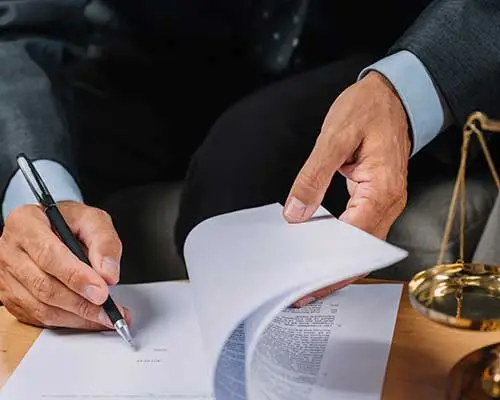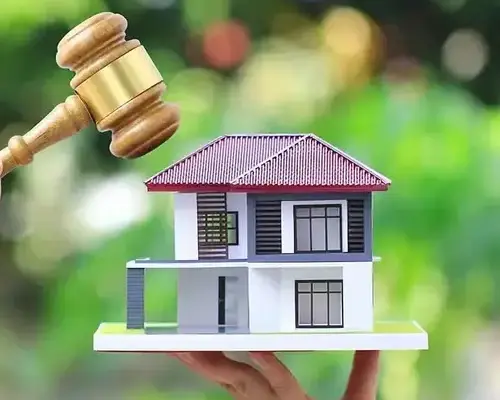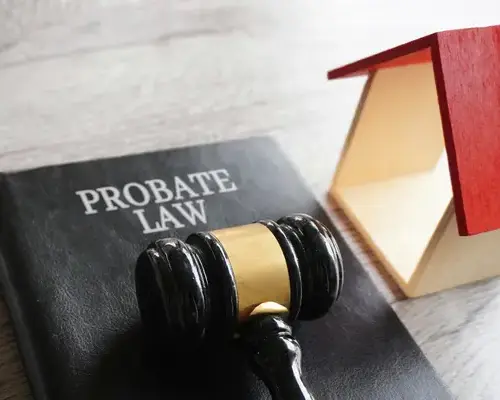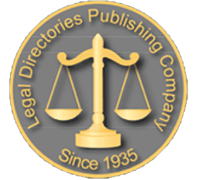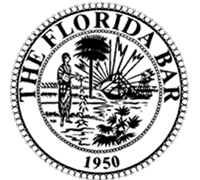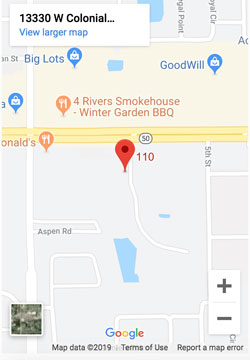Hiring a Will Contest Lawyer: A Complete Guide
After a loved one dies, discovering a will that seems suspicious can feel like a betrayal of their memory. You may feel a deep responsibility to protect their true legacy, but the thought of facing a legal battle alone is daunting. The court system has strict rules, tight deadlines, and a high burden of proof that can overwhelm anyone, especially while grieving. You don’t have to go through this by yourself. A will contest lawyer acts as your advocate, providing the legal expertise and strategic guidance needed to stand up for what’s right. They empower you to take action, managing the complexities of the case so you can seek justice for your family.
Key Takeaways
- Challenge a Will Based on Facts, Not Feelings: To contest a will in Florida, your feelings of unfairness aren’t enough. You must have a specific legal reason, like proving the person was mentally unfit, unduly influenced, or that the will itself is fraudulent or was signed incorrectly.
- Act Quickly to Protect Your Rights: Florida law sets strict, non-negotiable deadlines for contesting a will. If you wait too long, you lose your right to challenge it forever, no matter how strong your case is, so it’s essential to consult an attorney immediately.
- Specialized Legal Experience Is Non-Negotiable: Will contests are a complex area of probate law. Your success depends on hiring an attorney who focuses on this specific field, has a proven track record, and can clearly explain the process, costs, and realistic outcomes.
What Is a Will Contest Lawyer?
When a loved one passes away, their will is supposed to provide a clear roadmap for distributing their assets. But what happens when that document doesn’t feel right? If you suspect a will is invalid or doesn’t reflect the true wishes of the person who died, you might feel lost and unsure of what to do next. This is where a will contest lawyer comes in. They are your advocate in a highly specialized area of probate law focused on challenging the validity of a will.
Think of them as a guide through a complex and emotionally charged legal process. Their job is to investigate the circumstances surrounding the will, determine if there are legal grounds for a challenge, and represent your interests in court. They handle the intricate legal procedures so you can focus on getting through a difficult time. A will contest lawyer works to ensure the final wishes of your loved one are honored, helping you make things right when something has gone wrong. They can help you understand your rights and manage any challenges that come up along the way.
What Does a Will Contest Lawyer Do?
A will contest lawyer handles the formal legal process of challenging a will. This type of lawsuit, known as a “will contest,” is filed when an interested party—like a family member or beneficiary—believes the will is invalid for a specific legal reason. Essentially, they argue that the document doesn’t truly represent what the deceased person wanted.
Your lawyer’s role is to build a strong case on your behalf. This involves investigating the creation of the will, interviewing witnesses, gathering crucial evidence like medical records or financial statements, and filing the necessary legal paperwork. They will represent you in all legal proceedings, from initial hearings and settlement negotiations to a full trial if needed.
Key Areas of Expertise
Contesting a will isn’t about disagreeing with its contents; it’s about proving it’s legally flawed. A will contest lawyer has deep expertise in the specific legal grounds for these challenges. Common reasons to contest a will in Florida include a lack of testamentary capacity, meaning the person wasn’t of sound mind when they signed it. Other grounds are undue influence, where someone was pressured or manipulated into creating the will, and fraud or forgery. A will can also be challenged for improper execution if it wasn’t signed or witnessed correctly according to state law, or if a more recent, valid will is discovered.
How They Can Help You
Handling Florida’s probate laws on your own can be incredibly difficult, especially when you’re grieving. A will contest lawyer provides the clarity and support you need. They start by evaluating your situation to determine if you have a strong case. Because our attorneys are well-versed in state law, they know exactly what evidence is needed to build a compelling argument and how to present it effectively. They manage all the deadlines, court filings, and communication with the other parties, freeing you from that burden. Ultimately, they provide professional guidance to help you seek a just outcome and ensure your loved one’s true intentions are respected.
What Are the Legal Grounds for Contesting a Will in Florida?
If you feel a loved one’s will doesn’t reflect their true wishes, you can’t challenge it simply because you disagree with its terms. Florida law requires you to have specific legal grounds to contest a will. Think of these as the valid reasons the court will consider for invalidating the document. Understanding these grounds is the first step in determining whether you have a case. The process can be complex, which is why many people seek guidance on estate planning and probate matters from the start. Let’s walk through the most common legal reasons for a will contest in Florida.
Lack of Testamentary Capacity
This legal term sounds complicated, but the idea is simple. A will contest can be based on the argument that the person who made the will wasn’t mentally able to understand what they were signing. To have “testamentary capacity” in Florida, the person must have been of sound mind when they signed the will. This means they understood they were creating a will, had a general idea of the property they owned, and knew who their family members or beneficiaries were. Proving a lack of capacity often involves medical records or witness testimony about their mental state at the time the will was created.
Undue Influence or Coercion
Challenges can arise if someone unfairly pressured the person to write the will in a certain way. Undue influence happens when a person in a position of power or trust manipulates the will-maker to the point that the will reflects the influencer’s desires, not the person’s own. This is more than just giving advice; it’s a level of control that overpowers the person’s free will. Coercion is similar but often involves direct threats. These cases can be difficult to prove, but our attorneys can help you identify the signs and gather the necessary evidence.
Fraud or Forgery
Common reasons to challenge a will include fraud or forgery, where the will is fake, or the person was tricked into signing it. Forgery is straightforward: the signature on the will is not genuine. Fraud is a bit different. It could involve someone presenting the will-maker with a document and misrepresenting what it is, tricking them into signing something they don’t realize is a will. It can also involve fraudulent inducement, where the will-maker is told lies that influence them to change their will, like being falsely told that another family member has wronged them.
Improper Execution
Florida has strict rules about how a will must be signed and witnessed. If these rules aren’t followed perfectly, the will can be invalidated. For example, a will generally must be in writing, signed at the end by the will-maker, and signed by two credible witnesses in the will-maker’s presence. If the will wasn’t signed or witnessed correctly according to Florida law, it is not legally binding. Even small mistakes in this formal process, known as “execution,” can be grounds for a successful will contest.
Discovery of a Newer Will
Sometimes, a will is submitted to the court, but then a newer, valid will was found that should replace the old one. In Florida, a new will typically revokes all previous wills. If you discover a more recent will, you can present it to the court as part of a will contest. The key will be to prove that the newer document is valid and was executed correctly according to state law. This situation highlights why it’s so important for individuals to destroy old wills and clearly communicate the location of their most current estate planning documents to their executor.
How Does a Will Contest Work?
Challenging a will is a formal legal process that unfolds in a series of predictable steps. It’s not like what you see in the movies; it’s a structured court proceeding that begins long before anyone steps into a courtroom. The process starts with determining if you have the right to contest and moves through filing official paperwork, gathering evidence, and potentially negotiating a settlement. While every case is unique, understanding the general flow can help you know what to expect. It’s a path that requires careful attention to detail and strict adherence to court rules and deadlines. Having an experienced attorney to guide you through each stage is crucial, as they can manage the complexities and build the strongest possible case on your behalf.
Deadlines and Your Right to Contest
The first thing to know about contesting a will in Florida is that you’re on a tight schedule. There are strict deadlines, known as statutes of limitation, for filing a challenge. If you miss this window, you could lose your right to contest the will forever, no matter how strong your case is. This is why it’s so important to act quickly. If you have any concerns about a will, you should speak with an experienced estate planning lawyer as soon as possible. They can review the situation, explain your rights, and ensure you don’t miss any critical deadlines for taking legal action.
Evaluating Your Case
Before you can file a will contest, you need a valid legal reason, or “grounds,” to do so. Simply being unhappy with your inheritance isn’t enough. In Florida, you must be able to prove that the will is invalid for a specific reason. Common grounds include a lack of mental capacity, meaning the person wasn’t of sound mind when they signed it, or undue influence, where someone manipulated the person into changing their will. Other valid reasons are fraud, forgery, or proof that the will was not signed or witnessed correctly according to state law. An attorney will help you evaluate the facts of your situation to determine if you have a strong legal basis to move forward.
Filing the Initial Paperwork
Once you and your attorney have established that you have valid grounds and are within the legal time frame, the next step is to formally begin the will contest. This is done by filing a petition or complaint with the probate court. This document outlines who you are, your relationship to the deceased, and the legal reasons you believe the will is invalid. Filing this paperwork officially notifies the court and all interested parties, like the estate’s personal representative and other beneficiaries, that you are challenging the will. This is the first official step in the litigation process, and your attorney will handle drafting and filing it correctly.
Gathering Evidence
After the initial paperwork is filed, the discovery phase begins. This is where both sides gather the evidence they need to build their cases. The process can take a long time, as it often involves collecting a wide range of information. Your attorney may request medical records, financial documents, and personal communications like emails or text messages. They might also conduct depositions, which are formal, out-of-court interviews with witnesses, family members, and medical experts under oath. The evidence gathered during this stage is critical for proving your claims and is used to prepare for settlement negotiations or a potential trial.
Exploring Mediation
Many will contests are resolved without ever going to trial. Courts often encourage or even require the parties to try mediation first. During mediation, a neutral third-party mediator helps facilitate a conversation between everyone involved to see if a settlement agreement can be reached. This process is confidential and less formal than a court hearing. It can be a great way to save time, reduce legal fees, and preserve family relationships that might be strained by a lengthy court battle. Our firm always tries to resolve disputes amicably, but we are fully prepared to go to court if a fair agreement can’t be reached.
Going to Court
If mediation and settlement negotiations are unsuccessful, the case will proceed to trial. At this point, both sides will present their evidence and arguments to a judge. The judge will hear testimony from witnesses, review all the documents, and listen to legal arguments from the attorneys. After considering all the evidence, the judge will make a final ruling on whether the will is valid or invalid. Contesting a will is a complicated legal process, and a trial is the final step. Having a skilled litigator who is comfortable and experienced in the courtroom is essential to presenting your case effectively.
Facing the Challenges of a Will Contest
Contesting a will is more than just a legal process; it’s an emotional one that can be filled with complex hurdles. Understanding these potential challenges from the outset can help you prepare for the road ahead and make more informed decisions with your attorney. From navigating delicate family relationships to meeting strict legal standards, being aware of what to expect is the first step toward building a strong case.
Dealing with Family Conflict
Let’s be honest: this is often the hardest part. Will contests usually involve challenging the wishes of a loved one while in a dispute with other family members. The emotional and personal toll can be significant. It’s one thing to disagree with a stranger, but it’s another to be in a legal battle with siblings, stepparents, or other relatives. An experienced attorney does more than just handle the legal filings; they act as a buffer, managing communications and negotiations on your behalf. This allows you to focus on your case without the added stress of direct confrontation, preserving relationships where possible.
Meeting the Burden of Proof
In Florida, the person who created the will is presumed to have been of sound mind. This means if you decide to challenge a will, it’s your job to prove to the court why it should be invalidated. This is known as the “burden of proof.” You can’t simply state that you believe something is wrong; you must present clear and convincing evidence. This might include medical records to show a lack of capacity, emails or texts that suggest undue influence, or testimony from witnesses who observed the testator’s condition. An attorney is essential for gathering the right kind of evidence to meet this high legal standard for probate and estate planning disputes.
What if There’s a No-Contest Clause?
Some wills include what’s called a “no-contest clause” (or an in terrorem clause). This is a provision stating that if a beneficiary challenges the will and loses, they forfeit any inheritance they were supposed to receive. It’s designed to discourage contests. While this sounds intimidating, these clauses are not always enforceable in Florida. For example, if you have probable cause to believe the will is invalid, the court may not enforce the clause against you even if your challenge is unsuccessful. It’s a significant risk, and you should never proceed with a contest without first discussing the potential impact of a no-contest clause when you contact a lawyer.
Deciding Whether to Settle
Not every will contest ends up in a courtroom battle. In many cases, reaching a settlement through negotiation or mediation is a better alternative. Settling can save you a great deal of time, money, and emotional strain compared to going through a full trial. A settlement provides a certain outcome, whereas a trial’s result is never guaranteed. A good attorney will explore settlement options early on, but they will also be fully prepared to take your case to court if a fair agreement can’t be reached. This readiness for litigation is often what gives you the leverage needed to secure a favorable settlement.
Setting Realistic Expectations
It’s important to understand that contesting a will is rarely a quick process. These cases can take anywhere from several months to a few years to resolve, depending on the complexity of the estate, the level of animosity between parties, and the court’s schedule. There will be periods of intense activity followed by weeks or months of waiting. Patience is key. Your attorney can give you a more specific timeline based on the details of your case, but it’s best to prepare yourself for a marathon, not a sprint. Having realistic expectations from the start will help you manage the stress of the proceedings.
How to Prepare Your Case
Walking into a lawyer’s office can feel intimidating, but a little preparation goes a long way. When you’re organized, you can make your first meeting more productive and give your attorney the clear picture they need to start building a strong case. Taking these steps helps you feel more in control of the situation and ensures you and your legal team are on the same page from day one. It’s about laying a solid foundation for the path ahead.
Gather Key Documents
Before your first consultation, pull together every document related to the will and the estate. This is your starting point. You’ll want to find the original will, any previous versions you know of, and the death certificate. Also, gather any letters, emails, or text messages that might be relevant to the dispute. Having these papers organized allows your attorney to quickly assess the situation and understand the key facts. Think of it as providing the essential puzzle pieces so your lawyer can see the whole picture.
Create a Timeline of Events
Next, map out a timeline of important events. This doesn’t have to be complicated—a simple list of dates and corresponding events will work perfectly. Include when the will was signed, when the person passed away, and any significant interactions you had with them or other beneficiaries leading up to their death. This narrative helps your attorney understand the context of the dispute and identify critical moments that could influence your case. A clear timeline can often highlight inconsistencies or patterns that support your claim.
Confirm Your Legal Standing
In Florida, you can’t contest a will just because you disagree with it. You must have “legal standing,” which means you have a direct, personal interest in the outcome. Typically, this includes individuals who are named as beneficiaries in the current will or a previous one, as well as legal heirs who would inherit if there were no will at all. Before moving forward, it’s important to confirm you fit into one of these categories. An attorney can help you determine your standing during an initial consultation and explain how Florida’s probate and estate planning laws apply to you.
Work with Your Attorney
Your first meeting is a two-way street. It’s your chance to interview the attorney just as much as it is for them to evaluate your case. Come prepared with questions about their experience with will contests, their typical approach, and what you can expect regarding fees and timelines. A good lawyer will be transparent and ready to explain the process in a way you can understand. This initial conversation sets the tone for your working relationship, so it’s important to find someone you trust and feel comfortable with. You can often learn about a firm’s legal team on their website beforehand.
Organize Your Evidence
Beyond the core documents, think about any other evidence that could support your position. This might include contact information for potential witnesses, medical records if you’re questioning the person’s mental capacity, or financial statements that seem unusual. Keep everything in one place, like a dedicated folder or binder, with your timeline at the front. This organization not only saves time and money but also demonstrates that you are serious and prepared. When you’re ready to discuss your case, you can contact a law firm with your information neatly compiled.
How to Choose the Right Attorney
Finding the right attorney is arguably the most critical step in your will contest journey. This is the person who will be your guide, advocate, and strategist through a legally and emotionally complex process. You need more than just a legal expert; you need a partner you can trust. The right lawyer will not only have the necessary skills and experience but will also communicate clearly and make you feel supported. Taking the time to vet potential attorneys thoroughly can make a significant difference in both the outcome of your case and your peace of mind along the way. Think of this as a job interview where you are the one doing the hiring. Don’t be afraid to ask tough questions and trust your gut. Your goal is to find someone who understands the nuances of Florida probate law and has a proven history of handling cases like yours successfully.
Look for Specialized Experience
You wouldn’t go to a general family doctor for heart surgery, and the same principle applies here. While many lawyers have a general practice, will contests are a niche area of law that requires specific knowledge. Look for an attorney whose practice focuses on estate planning and probate litigation. A specialized will contest attorney can help you make things right and navigate the unique challenges that arise. They will be familiar with the specific statutes, court procedures, and legal precedents in Florida, which can be a major advantage. When you first meet with a potential lawyer, ask directly about their experience with will contests similar to yours.
Assess Their Communication Style
The legal process can be confusing, and the last thing you need is an attorney who is hard to reach or speaks only in legal jargon. Your lawyer should be a clear and consistent communicator. During your initial consultation, pay attention to how they explain complex legal concepts. Do they listen to your story and answer your questions patiently? You should feel comfortable asking about their approach to handling cases, the estimated timeline, and what you can expect throughout the process. A good attorney will set clear expectations from the start and have a system for keeping you updated on your case’s progress.
Review Their Track Record
While past performance is not a guarantee of future results, an attorney’s track record can offer valuable insight into their competence and experience. Don’t hesitate to ask about their history with will contests. Understanding a lawyer’s past successes can give you a better sense of their capabilities. You can often find testimonials on a law firm’s website or ask if they can provide references from past clients. The goal is to find one of the experienced attorneys who has not only handled these cases before but has a history of achieving favorable outcomes for their clients.
Understand the Fee Structure
Legal fees can be a major source of stress, so it’s essential to have a clear understanding of the costs before you commit. Attorneys may use different fee structures, such as hourly rates, flat fees, or a contingency fee basis (where they receive a percentage of the settlement or award). Ask for a detailed breakdown of the fee structure and get it in writing. A transparent fee agreement protects both you and the attorney and ensures there are no surprises down the road. Be prepared with your documents and a timeline of events so the lawyer can give you a more accurate assessment of the potential costs.
Ask About Additional Costs
The attorney’s fee is only one piece of the financial puzzle. Litigation often involves other expenses, and you need to be aware of them. These can include court filing fees, costs for ordering transcripts, expert witness fees, and expenses for depositions. Understanding these potential additional costs can help you prepare financially for the entire process. Ask the attorney for an estimate of these related expenses. A reputable lawyer will be upfront about all potential costs involved in your case, helping you make a fully informed decision before moving forward.
What to Expect When You Start
Taking the first step to contest a will can feel overwhelming, but knowing what lies ahead can make the process much clearer. Once you’ve chosen an attorney, you’ll work together to build your case from the ground up. This partnership involves open communication, strategic planning, and a clear understanding of the legal journey. From your first meeting to discussing potential results, your lawyer will be your guide, helping you handle each phase with confidence. Here’s a look at what you can expect as you begin working with your will contest lawyer.
Your Initial Consultation
Your first meeting is more than just a formality; it’s a crucial opportunity to lay the groundwork for your case. This is your chance to share your story and present the documents you’ve gathered. Come prepared to discuss the details of the will, the relationships involved, and why you believe the will is invalid. You should also use this time to ask important questions about the attorney’s experience with will disputes, their typical approach, and the estimated fees and timelines. Our goal during an initial consultation is to listen, understand your situation, and provide a clear, honest assessment of your case.
Developing a Case Strategy
After the initial consultation, your attorney will begin to develop a tailored strategy for your case. This isn’t a one-size-fits-all process. Your lawyer will analyze the specific facts, review the evidence, and identify the strongest legal arguments to support your claim. They will outline the steps involved, from gathering more evidence to potentially negotiating with the other party. A solid case strategy acts as your roadmap, helping you anticipate challenges and make informed decisions along the way. This collaborative planning ensures you are always prepared for what’s next.
Preparing Legal Documents
Contesting a will involves a significant amount of paperwork, and your attorney will handle the heavy lifting. They will draft and file the necessary legal documents to formally initiate the will contest with the court. To help them, you should continue to gather any relevant documents you can find, such as previous versions of the will, medical records, financial statements, and correspondence. Creating a simple timeline of events can also be incredibly helpful. Providing your lawyer with well-organized information allows them to build a stronger, more compelling case on your behalf.
Managing Important Deadlines
The legal system runs on strict deadlines, and missing one can jeopardize your entire case. Fortunately, this is something you won’t have to worry about. Your attorney is responsible for tracking all critical dates, from the initial deadline to file a contest to deadlines for submitting evidence during the discovery phase. They will manage the court calendar and ensure every document is filed on time. Understanding Florida’s specific probate and estate laws is key, and your legal team will make sure all procedural requirements are met, allowing you to focus on the big picture.
Discussing Potential Outcomes
From the very beginning, your attorney should have an open conversation with you about the potential outcomes of your case. This includes evaluating whether you have “legal standing”—the right to challenge the will in court. They will give you a realistic perspective on the strengths and weaknesses of your case, the likelihood of success, and what a victory might look like. They will also discuss the possibility of a settlement versus going to trial. This ongoing dialogue helps you set realistic expectations and make strategic decisions that align with your ultimate goals.
Frequently Asked Questions
How long do I have to contest a will in Florida? Florida has very strict and short deadlines for challenging a will, so you need to act quickly. The exact time frame depends on when you receive the formal notice of the probate proceedings. If you wait too long, you could lose your right to challenge the will forever, regardless of how strong your case is. Because of this urgency, it’s best to speak with an attorney as soon as you have concerns.
What happens if I win a will contest? If your challenge is successful, the court will declare the will invalid. From there, a couple of things can happen. If there was a valid, older will, the court might reinstate it and distribute the assets according to its terms. If there is no other valid will, the court will treat the situation as if the person died without a will, and the estate will be distributed to heirs according to Florida’s intestacy laws.
Do most will contests end up in a big court battle? Not at all. While some cases do go to trial, many are resolved much earlier through negotiation or mediation. These processes allow everyone involved to work toward a settlement agreement outside of the courtroom. A settlement can save a great deal of time, expense, and emotional stress for the family, which is why it’s often the preferred path for everyone involved.
I was completely left out of the will. Do I have any right to challenge it? It depends on your relationship with the person who passed away. In Florida, you must have a direct financial interest in the estate to have the “standing” to file a contest. This typically means you are a legal heir who would have inherited if there were no will, or you were a beneficiary in a previous version of the will. Simply being a friend or a more distant relative is usually not enough to give you the right to challenge it.
How can I prove the person wasn’t of sound mind or was pressured when it’s just my word against someone else’s? This is a common concern, but these cases are built on much more than just personal testimony. Your attorney will gather concrete evidence to build a strong argument. This can include medical records from doctors, testimony from caregivers or friends who witnessed the person’s mental state, and financial records that show unusual activity. The goal is to create a clear picture for the court using documented facts, not just opinions.

